#do we even like henry?
Text
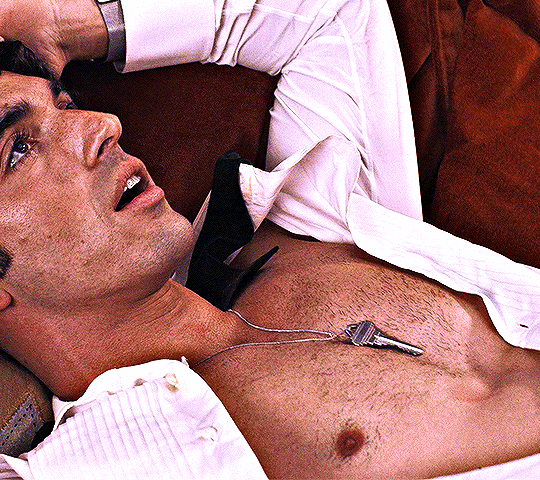





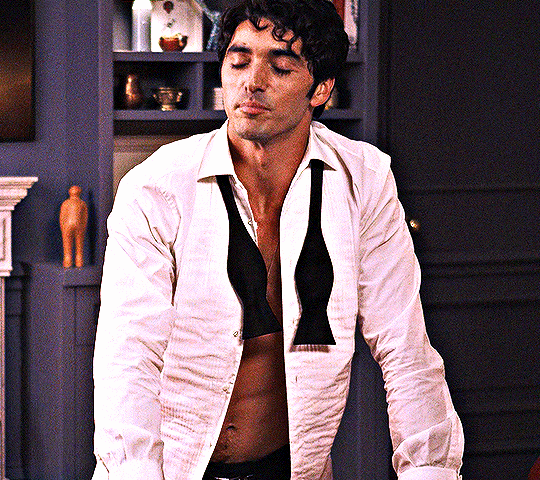

"How is a man to get anything done knowing Alex Claremont-Diaz is out there on the loose? I am driven to distraction."
#rwrb#rwrbedit#red white and royal blue#alex claremont diaz#userninz#userveronika#chrissiewatts#usersteen#usernuria#userclara#usergayppl#mine*#well. there are no excuses#ive been staring at this a while#henry i get u i really do#the tensing in the third one........................#i often think about how taylor is such a perfect casting in so many ways#like even down the eyelashes#i think we can forgive the height difference if the result is what we got#last rwrb related post until the full m&g posting occurs
1K notes
·
View notes
Text
Thinking about Elizabeth Woodville as a gothic heroine is making me go insane. She entered the story by overturning existing social structures, provoking both ire and fascination. She married into a dynasty doomed to eat itself alive. She was repeatedly associated with the supernatural, both in terms of love and death. Her life was shaped entirely by uncanny repetitions - two marriages, two widowhoods, two depositions, two flights to sanctuary, two ultimate reclamations, all paralleling and ricocheting off each other. Her plight after 1483 exposed the true rot at the heart of the monarchy - the trappings of royalty pulled away to reveal nothing, a never-ending cycle of betrayal and war, the price of power being the (literal) blood of children. She lived past the end of her family name, she lived past the end of her myth. She ended her life in a deeply anomalous position, half-in and half-out of royal society. She was both a haunting tragedy and the ultimate survivor who was finally free.
#elizabeth woodville#nobody was doing it like her#I wanted to add more things (eg: propaganda casting her as a transgressive figure and a threat to established orders; the way we'll never#truly Know her as she's been constantly rewritten across history) but ofc neither are unique to her or any other historical woman#my post#wars of the roses#don't reblog these tags but - the thing about Elizabeth is that she kept winning and losing at the same time#She rose higher and fell harder (in 1483-85) than anyone else in the late 15th century#From 1461 she was never ever at lasting peace - her widowhood and the crisis of 1469-71 and the actual terrible nightmare of 1483-85 and#Simnel's rebellion against her family and the fact that her birth family kept dying with her#and then she herself died right around the time yet another Pretender was stirring and threatening her children. That's...A Lot.#Imho Elizabeth was THE adaptor of the Wars of the Roses - she repeatedly found herself in highly anomalous and#unprecedented situations and just had to survive and adjust every single time#But that's just...never talked about when it comes to her#There are so many aspects of her life that are potentially fascinating yet completely unexplored in scholarship or media:#Her official appointment in royal councils; her position as the first Englishwoman post the Norman Conquest to be crowned queen#and what that actually MEANT for her; an actual examination of the propaganda against her; how she both foreshadowed and set a precedent#for Henry VIII's english queens; etc#There hasn't even been a proper reassessment of her role in 1483-85 TILL DATE despite it being one of the most wildly contested#periods in medieval England#lol I guess that's what drew me to Elizabeth in the first place - there's a fundamental lack of interest or acknowledgement in what was#actually happening with her and how it may have affected her. There's SO MUCH we can talk about but historians have repeatedly#stuck to the basics - and even then not well#I guess I have more things to write about on this blog then ((assuming I ever ever find the energy)#also to be clear while the Yorkists did 'eat themselves alive' they also Won - the crisis of 1483-85 was an internal conflict within#the dynasty that was not related to the events that ended in 1471 (which resulted in Edward IV's victory)#Henry Tudor was a figurehead for Edwardian Yorkists who specifically raised him as a claimant and were the ones who supported him#specifically as the husband of Elizabeth of York (swearing him as king only after he publicly swore to marry her)#Richard's defeat at Bosworth had *nothing* to do with 'York VS Lancaster' - it was the victory of one Yorkist faction against another#But yes the traditional line of succession was broken by Richard's betrayal and the male dynastic line was ultimately extinguished.
59 notes
·
View notes
Text
Is your man an elderly scientist who lives in a mansion on an island that may or may not be inhabited by ghosts who's known to isolate himself, is known to wield firearms and who is also definitely gay. Then that might not be your man. That might be Kurt (Dread Weight) or Henry Hidgens (Hatchetfield)


#starkid#cooking companions#dread weight#kurt dread weight#henry hidgens#jeff blim#deer dream studios#IT'S THE SAME PHOTO DONT EVEN#Im so serious ive got a month to decide how i want my first full route of dread weight to go#its implied#yes i thought abt the implications#its implied we being the player can kill renata dimitri gisela and kurt#but do i want to fucking kill him or just. yknow. ;)#why didnt it occur to me that kurt might have ghost sprites until twenty minutes ago#ive known abt this game for over a year#literally since 2022#hi hatchetfield fans who might be reading this who follow me for hatchetfield you are witnessing me going insane in real time#yes this is ur sign to wishlist dread weight its literally gonna slay#if you like hatchetfield youll love dread weight#especially npmd#consjderthecoconut
61 notes
·
View notes
Text
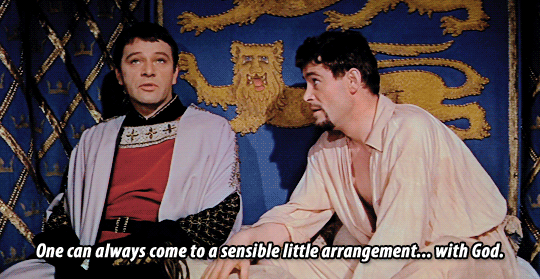
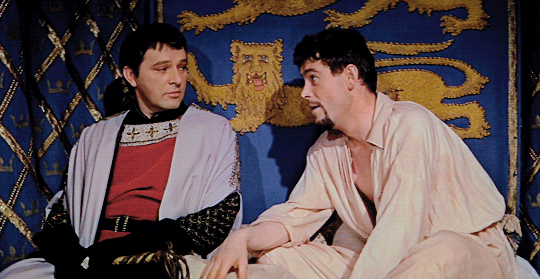
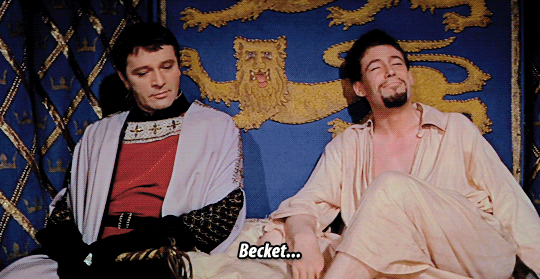
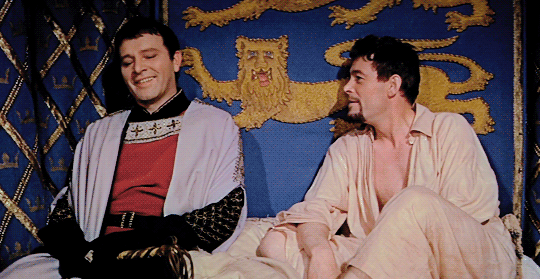
Becket (1964)
- But what will God say if I attack his church? After all, they're His bishops.
- We must manage the church.
#becket#the wrist (in lap) squeeze and henry’s heart-eyes 🙃#the irony of becket encouraging henry to do exactly what becket will end up resisting with all his might in just a few days#the seductiveness of essentially suggesting ‘WE can do whatever we want—God won’t mind (because I say so).’#the fact that henry is almost naked and just had sex 5 minutes earlier and probably smells like it#who said that#im just saying if I were to write smut for this movie (and I’m not) it would be based on this scene#becket 1964#filmedit#richard burton#peter o’toole#things i made#sorry I recolored this after posting AND even after reblogging with bonus gifs so now there are just two different versions#I started thinking it was too yellowy and washed out#probably too pink now. whatever. reblog whichever you prefer if you’re so inclined
56 notes
·
View notes
Note
Hello! We all know (or hopefully perceive the idea) that Satan would be a sweet romantic at heart! So imagine Satan x MC in an arranged marriage in TSL AU! For eg: everything was going well, they’re slowly falling for each other but MC has to keep secrets that hurts Satan! So MC tries gaining his trust by being honest, while Satan falls for MC again, as much as he denies it!
Of course, feel free to discard the idea, no pressure :)
Just A Small, Little Lie (TSL Arranged Marriage! AU)
(first request! i won't lie, i'm relatively new to the fandom and couldn't find any specifics for the tsl!au other than mc being henry and the demon brothers being the seven lords. but! i hope this suffices! all the tsl writings out there seem to have a more darker, sombre tone, too - so i hope that comes across :D but thank you so much, anon, for being my first requester! i hope its decently alright ahaha)
(Full fic under the cut! And feel free to plop ideas in the idea box :D)
Synopsis:
(Takes place in the TSL! AU - reader is Henry).
You used to be a knight serving the Seven Lords, popular amongst all in the realm. Then one day, without warning, the Lord of Corruption orders you to marry the Lord of Masks; of whom you had the closest relationship with out of all his brothers. However, the feelings for him that had once been growing in your heart turn sour as you're required to give up your knighthood, your life and your freedom for this arranged marriage.
Your husband gradually drops his mask, as he falls deeper in love with you.
And you gradually put up your mask, as you fall further out of love with him.
_
You don’t tell your husband that your fingers hurt, as you wind the stems of green willow between them into something that maybe, possibly resembles a flower chain. Fake green willow; because nothing survives here except him, you and the cats he allows to come and go from the castle. Fake green willow; with plastic that splits into sharp prongs that dig into your flesh when you bend it. Your husband’s flower chain is made with real green willow that has long since withered away; but today, for whatever reason he keeps behind the mask he wears, he’s decided to bring the flowers back to life by winding them into a chain. And, for whatever reason, he’s demanded you do the same.
Your flower chain looks horrible. His chain looks perfect. Like your perfect husband, with his perfect kingdom, and your perfect marriage.
The perfect, perfect marriage you never even asked for.
You don’t tell your husband much of anything, nowadays. You remember your days as Henry, the brave knight, who fights against evil and protects the seven, wise sages of the realm. You used to talk with the Lord of Masks before heading off on excursions, during breaks in military council meetings, over private, celebratory dinners… Anytime you could, you’d seek him out. You remember shifting in your seat the first time you had invited him to dinner, avoiding his gaze bashfully as you both had placed your hands on the table, fingers inching ever closer to touch. You remember he had taken your hand in his, lifting it to his lips. You even remember the exact knuckle where his soft, gentle lips had kissed. Such a romantic night; where you were free to speak and laugh and smile as you pleased. Free to possibly even fall in love with him.
… Free. You were free, until the Lord of Corruption had suddenly forced you over to the Lord of Masks as a prize. He had stripped you of your title as a knight, had forbid you from entering any other kingdom, and presented you to his brother with a shackle on your ring finger and a matching mask to wear.
So now, you do what you do best as a knight and steel yourself, putting up your guard. Everything you want to think, say or do… you keep secret.
_
The Lord of Masks doesn’t realise your fingers hurt, as you wind the stems of green willow between them into something that maybe, possibly resembles a flower chain. Fake green willow; because nothing survives here and he wanted you to have only the prettiest things which come close to matching your beauty. Fake green willow; which pales in comparison to the adorable expression on the face of his dear, beloved Henry, your tongue poking out of the corner of your mouth in concentration. He, himself, doesn’t really know why he’s decided to come to your room in the middle of the night to make flower chains, but he tells himself it’s to keep his spouse entertained. Nothing more than his usual behaviour and cunning. To keep up the façade of an upstanding, untouchable member of society.
He marries Henry and keeps them happy.
He shares in Henry’s immense popularity and gets the knight’s military prowess at his disposal.
Such a good deal for Henry, the Lord of Masks thinks… ignoring the unfamiliar, warm heat spreading over his flushed cheeks when you hold out your finished flower necklace out to him.
A good deal for Henry - no, not himself - indeed.
He tells you too much, these days. He remembers talking to you: Henry, the knight - not Henry, his spouse. Faking his smile in the breaks between council meeting and pretending to care before you headed off on military excursions.
But then you had invited him to dinner for the first time after a victory. Then, he had seen expressions he had never seen you show anyone. Not even his brothers. The Henry that wasn't just the tool he could use to conquer territory; nor the Henry he could use to gain status. This Henry smiled at him. Stuttered and faltered and even blushed when he kissed their hand - like the princesses in the fairytales he pretended he didn't love to read, or the fairies illustrated in the bedtime stories he read as a child. Someone enchanting, perfect and loving in a world where's he's only known masks.
So he does what he does best and dons his own mask. Through his various connections in high society, he had covertly pulled the strings and had the marriage arranged himself; masquerading it as his idiot older brother's idea. It’s on-brand; a marriage proposal masked as pure business, so he never has to face what he really feels. But he can pretend. Pretend he was brave enough to get down on one knee, ring in hand. Pretend that his story was exactly like that of the heroes of his favourite tales.
Pretend it wasn't the prince, instead, who was hopelessly, foolishly, in love with his loyal knight.
_
The Lord of Masks smiles. If one looks closely, past the haze of the lamplight, they might be able to notice that the smile reaches his eyes. He takes the necklace made by his spouse and barely squeezes it over his head and around his neck. Green willow-shaped plastic digs into his skin.
You try to smile, too. You look at him and try to remember the man who had lovingly pressed a kiss to your hand on that night, small specks of emotion spilling out from under his carefully-crafted guise. You keep his true image in your eyes - that of your rage-filled captor - a secret. It’s the only way for you to keep up your own act… and maybe stop yourself from breaking the heart of the gentleman you once held feelings for. If he was even still there at all.
“I love you.” The Lord of Masks says, forgetting how tight the flower chain had felt around his neck only seconds ago. His mask slightly falls forward, loosely, as he leans his head against yours and gently nuzzles you - like a cat would. He even rubs his nose against yours, basking in your scent. Internally, he curses himself. His body is betraying him.
“I… I love you, too.” You say, the band of your own mask chafing painfully into the back of your neck. You're unable to move when your husband shows his affection and you ready yourself to play it off as nerves. But something in your heart - as you look at him and see the man who had leaned forward to kiss your hand - falters. Were you still holding out hope, even now? Internally, you curse yourself. You need to learn to be better at acting.
The two of you stay there a while: the Kingdom of Masks' happy, perfect couple. Your foreheads touch, your fingers intertwine and, yet, your hearts are far, far apart. Into the darkness, the two of you continue to utter that sentence:
"I love you."
It's a whole-hearted truth after a lifetime of hiding, for one...
… And one of many, many small, little lies, for the other.
(hello, anon, i hope you enjoyed this! i went kinda tragic love story route; with hopeless romantic satan and a trapped mc, though i'd like to think mc is still holding out hope that the man they fell in love with is still there. if you wanted something a little happier though, anon, please let me know and i'll write a sequel, this premise is one i really enjoyed!)
#could even do an arranged marriage series#a bunch of super tragic love stories#i'd like to think there would be some range#like the lord of flies is super chill and maybe he didn't want the marriage himself#whereas if the lord of corruption doesn't like the marriage you never see him at all#or dealing with the lord of emptiness' disappearance#what do y'all think?#obey me writing#obey me shall we date#obey me mc#obey me#obey me headcanons#obey me nightbringer#obey me lucifer#obey me angst#obey me tsl#the tale of the seven lords#obey me tsl lord of corruption#obey me tsl lord of masks#obey me tsl henry
38 notes
·
View notes
Text
'trc adaptation is bad bc they mixed timelines and cut out lots of stuff' 'trc adaptation is bad bc they sanitised adam's bitchiness' 'trc adaptation is bad bc they made the ganseys democrats' NO TRC ADAPTATION IS BAD BC IT'S SET IN 2024 and not in 2001 like god intended!!
#trc#trc goncharov#like. even watching them trying to justify adam not having a phone was ridiculous. no matter what he just seems like ✨not like other girls#hashtag so quirky#oh also blue's wardrobe???? why is she dressed like tiktok 00s aesthetic girlie ffs? it doesn't work like that! she's not trendy!#she's a weirdo! she diys every outfit she wears she doesn't own a single black piece of clothing!#and can we talk abt adam changing outfits like 5678424 times during just first 4 eps that I've seen so far#like. be fr. look me in the eye. look me in the eye and tell me that boy owns more than 3 tshirts.#and i will not say anything abt gansey's yacht grandma wordrobe erasure bc everyone already said their piece.#it's just this trend of not allowing teenage characters be the cringe teens that they are#not you tho henry u did great no notes#and if ur asking what is henry doing there in the first season first of all ur racist second of all he's there to slay. next question#*yacht grandPA but u know what. another missed opportunity
46 notes
·
View notes
Text
i think talking about “cope” within a tjlc context is hilarious at this point. i’m not on copium baby i’m on something worse! we moved beyond notions of cope approximately 4 years ago. blog theory and EMP have burned out like great stars and all that’s left is the hardest stringiest life forms. what anyone still riding this train has going on is much more complicated and personal than cope. i invented cope. after what i’ve seen there’s nothing cope could do for me. i stare into the eye of the storm with breathtaking awareness. i welcome entropy. “what else could they possibly mean by this?” is our equivalent of “what is the sound of one hand clapping?” almost a meditation on the nature of our state. there is no answer to this question, in fact the very lack of an answer is the point. cope is for those who still can shield their eyes, but we have been burdened with sight! i took an edible approximately three hours ago
#caveats:#im still pro blog theory i just mean that the fever pitch of theory making to ~fix~ s4 is past us#also you should read this like i’m a campus preacher screaming at you about fornication#it’s not a serious post#but in a way it’s also deeply serious#i do feel ‘beyond’ what we typically understand to be like fandom delusion and cope in the aftermath of shit not going how they wanted#like clearly we’ve surpassed that now this isn’t renewasacrew this is the psych ward#im levitating off the ground like henry sugar from my years of diligent study of johnlock esoterica#there are like 10 ppl on this app who are even able to get what i’m talking about sometimes#god i’m high
43 notes
·
View notes
Text

I had a vision of this being in Henry's wardrobe
#ramble in furness#his wardrobe is just memes and shitposts is2g#originally I was laughing at that one 'but daddy i love him' shirt#tfc makes one of his extremely rare home visits to speak with Gordon about something#and Henry answers the door wearing this#Henry's not even phased like 'oh hello sir what do we owe you the pleasure?'#TFC doesn't know how to respond to it so he just DOESN'T#James is in the background laughing his ass off like#'mate he's got worse trust us'#Gordon finally realizes what's going on and kicks Henry out the apartment for the evening#James too for good measure#he didn't even do anything Gordon's just fed up LMAO
16 notes
·
View notes
Text
thinking about the line "You can never undo what I've done to her, you know." again.
#dsaf#dsaf henry#jack kennedy#because like. Jack canonically feels guilt over Dee's death#not just Blackjack. the actual soul. no JACK. The One We Play As.#in the cutscene where Peter is watching the news and learns about Jack being framed for murdering Dee#Jack shows up and his first words to his brother are that He Failed. He Couldn't Save Her#there's also just Blackjack's Whole Existence#like. while it's not outright stated. Henry says something about souls that are tainted by intense enough regret having the power-#-to travel between timelines and even enter places that are between timelines#like. Blackjack is able to travel between timelines. in Dsaf 2 if you do the Evil Route Blackjack offers to take you back in time-#-so that you can choose to do good this time and fix your mistakes. and also. remember the fact that he dragged Henry to the Void.-#-a place basically outside of time. like i'm pretty sure it's canon that Blackjack is powered by Jack's Regret About Dee's Murder.#listen this line makes me Lose My Mind. you don't understand how badly it messes me up to think about
21 notes
·
View notes
Text
extremely annoyed in retrospect how often the phrase 'great whore' was scripted in BE.
#elizabeth was not SO negligible that all and sundry would have called her mother that to like...her face?#she was literally second in line to the throne.#it also would have been more impactful had it been said less like i suppose i could* see henry dudley saying it probably the seymours#(we do actually have contemporary reference tseymour actually referenced it once- 'no words of boleyn' - in a pun )#but like...kparr? really?#also what she said about khoward...maybe if they had worked in more that her seymour marriage made her unfavorable to the howards?#which would have been helpful were any in the cast. to ground that#tl; dr most contemporary remarks in the aftermath-- even from those not favorable to anne-- like francis bryan#who was arguably instrumental in her downfall#referred to her as 'the late queen'#even apologists of hviii like william thomas as one of edward vi's councilors#referred to her as 'the lady anne'#idk i wish er. they had read more source material on the matter than like. carolly erickson#that's all i have to say.......
22 notes
·
View notes
Text





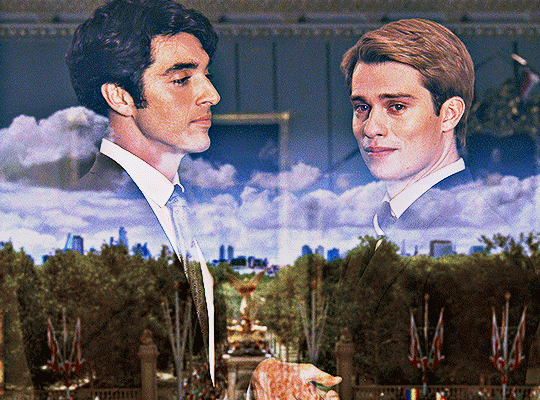
They still love you.
#rwrb#rwrbedit#red white and royal blue#alex x henry#firstprince#userninz#userveronika#chrissiewatts#usersteen#usernuria#usermegsb#userclara#mine*#we do!!!!!!!!!#cant even begin to imagine the sheer relief of this moment for henry#like he'd been raised to think who he is was wrong and forced to hide away with no support#and then actually to see that its not all bad and there are masses of support there#love that for him#the tears in their eyes in the last one#hollll up im emotional#smth funny abt them including sheffield in the list like kjfsgkh its such a polar bear in texas kinda moment
595 notes
·
View notes
Note
Is it true that Elizabeth of York birth celebrated like she was a son? I have seen some historians say this.
Hi! Yes, Edward IV did celebrate his daughter’s birth as though she was a male heir (“a prince”).
While we have no contemporary reports at the time of Elizabeth of York's birth, we know that Luchino Dallaghiexia reported that the birth of Edward and Elizabeth's third child, Cecily of York, "rejoiced the king and all the nobles exceedingly*, though they would have preferred a son'. Wanting a son (ie: an heir) was typical for their time period, likely enhanced by Edward and Elizabeth's unprecedentedly controversial marriage, her very unsuitable origins and his own status as a usurper. The fact that he was described as being "exceedingly" delighted at the birth of his third daughter in a row regardless does support the claim that he would have gone over-the-top to celebrate the birth of his first legitimate** child.
Hope this helps!
*Bizarrely, I have seen several historians and blogs using Dallaghiexia's letter to claim that he was bitterly disappointed at Cecily of York's birth. I don't understand how historical reading comprehension can be so poor that "rejoiced the king exceedingly" has somehow been rewritten as the...exact opposite of that. With no self-awareness whatsoever.
**His illegitimate daughter Margaret (known as Elizabeth for some reason) was almost definitely born before his marriage. We don't know the birth dates of his other two illegitimate children: I think the likeliest conception date for Arthur was in early 1470, but it's unverified; and we know nothing about Grace (which was in fact her surname, not her name) other than the fact that Elizabeth Woodville seems to have been very attached to her.
#ask#elizabeth of york#edward iv#queue#speaking of which#did I mention how much I dislike historians who state that one of Elizabeth Woodville's 'advantages' was that 'she was fertile'#and just leave it at that?#or dumbfuck Anne Boleyn stans who argue Elizabeth was 'safe' because she had a son (she was literally deposed twice but okay)#That is simply incorrect and a complete erasure of her actual - presumably difficult - experiences#Elizabeth literally 'failed' (so to speak) to have a son throughout her first queenship#She had three daughters back-to-back#Her first son with Edward IV was in fact born seven years into her marriage after her husband had already been deposed and in exile#It does her an incredibly disservice to rewrite her very complicated situation according to your own whims and fancies#Particularly considering the very unusual nature of her marriage and rise to queen (+Edward's own status as an usurper)#which meant that Elizabeth - like H8's wives after her - was in a far more precarious position than sonless foreign royal queens before her#And while the lack of a son clearly didn't affect her personal marriage (her husband celebrated their eldest daughter's birth#as though she was a male heir and was described as exceedingly happy at the time of their third daughter's birth;#they decided to go on a pilgrimage - presumably to ask for a son - *together*; etc)#That doesn't change the fact that they were in a very very difficult situation that having a son could have resolved/legitimized#Worries that may have intensified even more after 1469 when George of Clarence (second York brother) rebelled against Edward#I also suspect their lack of a son affected the nature of Warwick's propaganda against them during his rebellions#but that's a whole other topic of discussion#Either way: What we should never do is erase and rewrite Elizabeth's (and Edward's) very complex situation in the 1460s#in favor of an inaccurate but more 'convenient' alternate history#It's a little odd tbh because I HAVE seen such discussions for Anne of Bohemia; MoA; and Henry VIII's wives#who all struggled to have male heirs#But for some reason Elizabeth's situation is not even acknowledged - let alone discussed#funny how that happens#anyway#ik I went VERY off track I'm sorry about that
12 notes
·
View notes
Text
an epiphany: Silver does not, and cannot, have a backstory, simply because he is the archetypal pirate. and pirates do not have histories.
I do a lot of research on pirate history in my free time, and one thing that has always really struck me is just how little we have to go off of. We do have primary source records of their exploits - primarily reports from the crews of ships they attacked, and if they were unlucky enough, transcripts from their trials and executions , but as soon as you ask "well, who were they before they were pirates?", almost always, there is simply nothing to draw up, even for the most famous of figures. Calico Jack Rackham appears on the scene in 1718, already Charles Vane's quartermaster, with nothing to say of where he came from. Samuel Bellamy sailed from Cape Cod to raid the treasure-wreck of the Urca d'Lima, but his life in Massachusetts is marred in speculation. Blackbeard made landfall in Nassau soon after the War of Spanish Succession, but so many pirates used pseudonyms that we cannot even be sure that his real name was Edward Teach. All we can say is maybe, maybe, maybe.
so of course Silver, being the icon that we can trace nearly all of our modern conceptions of piracy to, would have no past. the real ones didn't either. As far as written history is concerned, the sea conjured them up. Even if their stories were not unremarkable, they were simply... without relevance.
#this is why i get so emotional about Dennis McCarthy (c.1690- 11:00 AM December 12 1718 RIP)#the only reason we know he lived is because he died! ALL we have is a record that he signed a pardon and then his trial proceedings#and we can extrapolate from that all we want! but he was a real living person and that is ALL that's left of him! he's simply gone#i cant stand it#--------#anyway#the only pirates we DO have detailed info about are ones that were wealthy well-named and landed prior to becoming pirates#like William Kidd - Stede Bonnet - and Henry Jennings#privilege didn't just buy you your life. it bought you your memory.#everyone else had to fight for the scraps of legacy#legacy that was already being transmuted into myth long before the nooses even tightened#black sails#john silver
175 notes
·
View notes
Text
I’d need to watch it again to confirm this, but I’m pretty sure that Thomas Becket is the only character who independently initiates touch with Henry?
There are plenty of people whom Henry touches, and it’s almost always possessive or threatening: the villager woman in the first flashback scene, the Saxon peasant girl (and possibly the old man? I think he prods at both of them with his riding crop), Gwendolen (holding her shoulders/neck), the French prostitute (kissing, leaning over, sitting on, slapping her butt), his sons (pushing and kicking them), the bishop (strangling), his barons (clutching onto one, tapping one’s head to indicate his vapidness), and Thomas too—(clasping his shoulders when he realizes Thomas is hurt, holding his hand to put on the chancellor ring).
Interestingly, I don’t think we ever see Henry touch or be touched by his mother or his wife. There’s the moment when he grabs/kicks their needlework, and later on he knocks all the plates off the table, possibly vaguely in their direction—so there are two physical interactions which are violent but still sort of… distant? And still the direction is just Henry to them (in terms of physicality, anyway—verbally, they do initiate conversations/fights with him).
Does anyone touch Henry? There are the monks who whip him in the end, but Henry has ordered them to do it. Likewise, there’s the servant/valet/page who begins to wipe him dry in the bath scene, but again, that’s someone performing a duty. Thomas Becket though, cuts in and takes over the drying, and the dialogue tells us explicitly that he’s not expected to do this, and doesn’t have to (“You’re a nobleman—why do you play at being my valet?”) but Becket seemingly wants to do it, and he knows Henry likes how he does it: enthusiastically, confidently, warmly, and freely (“No one does it like you, Thomas”). He towels Henry’s head, helps Henry put on his boots, and then casually uses Henry’s legs to push himself up to stand.
There’s the scene in Henry’s tent, after the French prostitute has left and the two of them are sitting on the bed: Becket sort of leans in and briefly clasps Henry’s arm where it’s lying in his lap, casually and warmly.
There’s also the getaway horse ride, where Becket is holding onto Henry, arms wrapped around him, and they’re both laughing and smiling. Henry’s shirt actually falls open a little and Becket’s hand winds up on his bare torso.
And then there are the thwarted attempts at touch, after the split: the two scenes where Henry accuses Becket of not loving him. Both times, Becket moves toward Henry and reaches out to touch him, and both times, Henry moves away and tells him to keep his distance.
They’re quick little things, but if they are actually the only instances of anyone touching Henry affectionately (or even of their own volition) that we see over the course of the movie, it does support an impression of Henry as fundamentally isolated—maybe there is truth to his claim that Becket is the only person who’s ever loved him.
What’s tragic is that 1) Henry doesn’t really know how to express love himself (see: Henry expressing nothing but violence and entitlement to everyone else around him, and even to Becket for the most part), and 2) Becket’s love, albeit huge in Henry’s world, is conflicted and unfulfilling—for both of them.
Becket might be the only person who’s dared to reach out to Henry and meet him on something close to a human level, and Henry loves him for it, but why does Becket do it? Part of it may just be an instinct of Becket’s to fulfill a need where he sees one, if he can, and if it benefits him. I think it’s so interesting that Henry seems obsessed with the question of whether Thomas really loves him, when it seems the truth might be that Thomas actually doesn’t know; maybe it’s an unanswerable, even nonsensical question to him. Like, what else could he do? I don’t know. “Insofar as I was capable of love, yes I did [love you].” But the fact that his last words, unwitnessed and private, are, “Poor Henry.” Fuck me up.
Ok, that last paragraph got away from me and now I can’t stop. Tempted to draw comparisons to “Beauty and the Beast” (this is a sad version where no magical transformation happens… unless you take a particular Catholic stance and consider that both of them maybe took real solace and meaning in Thomas being made a saint and that Henry maybe found real absolution through his penance).
I also want to compare all of this to “The Lion in Winter”, where it feels like, rather than a story about one lonely monster in a castle full of people he sees as objects, it’s a whole microcosm of traumatized and power-hungry people, reaching out for power and security and love and stabbing each other in the back, over and over. (Like, of course his mother and wife and kids have complex feelings for him—some of which involve love!) I think that depiction is better and less myopic, more true to life and probably a more accurate portrait of the historical figures involved (even when it comes to Henry and Becket—Becket was of that world too, after all), but I think I’ve rambled enough about all of this, so I’m going to end this post now. I’ll just say that there’s something nevertheless appealing about the boiled-down fairytale melodrama of “no one else ever loved me but you!”
#this entire post (tag ramble and all) was in my Drafts for like 3 months. it’s a lot of words that don’t say much but I’m setting it free ->#and now a new epiphany#henry is just the fucking phantom of the opera again isn’t he lmao#the original blorbo#(for me I mean)#which makes thomas christine and god… is raoul.. :/#maybe it’s a hot take to call becket a simple fairytale melodrama lol#it has its complexities… there’s… spirituality and politics#(although idk if the film is actually that interested in the matter of the separation of church vs state)#there’s the entire thing about oppressive hierarchal social structures and whether love is possible within such a structure#and if it’s not possible to escape and not possible to love in it then is love even a meaningful concept? is this becket’s issue?#in the dvd commentary peter otoole was so unconcerned with / unaware of a marxist and feminist reading of it that I was baffled#and had to realize that I was seeing that by default but that it’s not like. actually the default or Correct meaning#the co-commentator tries to go down that direction talking about Henry’s mistreatment of Becket and Gwendolen#and then he asks otoole if he thought that was reading into it too much and otoole is like ‘yes lol’ so .#his take seemed almost existentialist? like the tragedy of henry and thomas is that they are bound to different Roles in the world#and that they simply couldn’t be otherwise even though parts of them wanted it to be different#because they’ve chosen different paths different meaning to fulfill (but are aligned in a way by becket’s death/ascension)#and that is definitely a huge aspect of it#becket’s line: ‘we must do—absurdly—what we have been given to do’#hmm#anyway clearly I’m fucking insane now so#have this I guess . or don’t lol. goodnight#I’m giving myself a d+ for this tumblr.com paper#becket#peter o’toole as henry ii cinematic universe
8 notes
·
View notes
Text
Alright uninformed rant time. It kind of bugs me that, when studying the Middle Ages, specifically in western Europe, it doesn’t seem to be a pre-requisite that you have to take some kind of “Basics of Mediaeval Catholic Doctrine in Everyday Practise” class.
Obviously you can’t cover everything- we don’t necessarily need to understand the ins and outs of obscure theological arguments (just as your average mediaeval churchgoer probably didn’t need to), or the inner workings of the Great Schism(s), nor how apparently simple theological disputes could be influenced by political and social factors, and of course the Official Line From The Vatican has changed over the centuries (which is why I’ve seen even modern Catholics getting mixed up about something that happened eight centuries ago). And naturally there are going to be misconceptions no matter how much you try to clarify things for people, and regional/class/temporal variations on how people’s actual everyday beliefs were influenced by the church’s rules.
But it would help if historians studying the Middle Ages, especially western Christendom, were all given a broadly similar training in a) what the official doctrine was at various points on certain important issues and b) how this might translate to what the average layman believed. Because it feels like you’re supposed to pick that up as you go along and even where there are books on the subject they’re not always entirely reliable either (for example, people citing books about how things worked specifically in England to apply to the whole of Europe) and you can’t ask a book a question if you’re confused about any particular point.
I mean I don’t expect to be spoonfed but somehow I don’t think that I’m supposed to accumulate a half-assed religious education from, say, a 15th century nobleman who was probably more interested in translating chivalric romances and rebelling against the Crown than religion; an angry 16th century Protestant; a 12th century nun from some forgotten valley in the Alps; some footnotes spread out over half a dozen modern political histories of Scotland; and an episode of ‘In Our Time’ from 2009.
But equally if you’re not a specialist in church history or theology, I’m not sure that it’s necessary to probe the murky depths of every minor theological point ever, and once you’ve started where does it end?
Anyway this entirely uninformed rant brought to you by my encounter with a sixteenth century bishop who was supposedly writing a completely orthodox book to re-evangelise his flock and tempt them away from Protestantism, but who described the baptismal rite in a way that sounds decidedly sketchy, if not heretical. And rather than being able to engage with the text properly and get what I needed from it, I was instead left sitting there like:
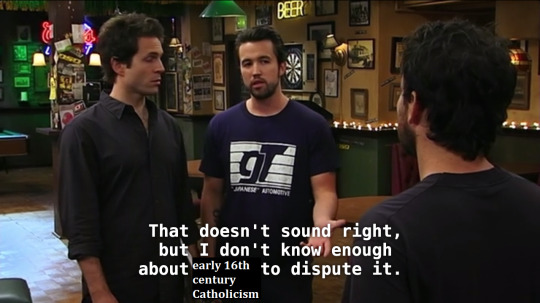
And frankly I didn’t have the time to go down the rabbit hole that would inevitably open up if I tried to find out
#This is a problem which is magnified in Britain I think as we also have to deal with the Hangover from Protestantism#As seen even in some folk who were raised Catholic but still imbibed certain ideas about the Middle Ages from culturally Protestant schools#And it isn't helped when we're hit with all these popular history tv documentaries#If I have to see one more person whose speciality is writing sensational paperbacks about Henry VIII's court#Being asked to explain for the British public What The Pope Thought I shall scream#Which is not even getting into some of England's super special common law get out clauses#Though having recently listened to some stuff in French I'm beginning to think misconceptions are not limited to Great Britain#Anyway I did take some realy interesting classes at uni on things like marriage and religious orders and so on#But it was definitely patchy and I definitely do not have a good handle on how it all basically hung together#As evidenced by the fact that I've probably made a tonne of mistakes in this post#Books aren't entirely helpful though because you can't ask them questions and sometimes the author is just plain wrong#I mean I will take book recommendations but they are not entirely helpful; and we also haven't all read the same stuff#So one person's idea of what the basics of being baptised involved are going to radically differ from another's based on what they read#Which if you are primarily a political historian interested in the Hundred Years' War doesn't seem important eonugh to quibble over#But it would help if everyone was given some kind of similar introductory training and then they could probe further if needed/wanted#So that one historian's elementary mistake about baptism doesn't affect generations of specialists in the Hundred Years' War#Because they have enough basic knowledge to know that they can just discount that tiny irrelevant bit#This is why seminars are important folks you get to ASK QUESTIONS AND FIGURE OUT BITS YOU DON'T UNDERSTAND#And as I say there is a bit of a habit in this country of producing books about say religion in mediaeval England#And then you're expected to work out for yourself which bits you can extrapolate and assume were true outwith England#Or France or Scotland or wherever it may be though the English and the French are particularly bad for assuming#that whatever was true for them was obviously true for everyone else so why should they specify that they're only talking about France#Alright rant over#Beginning to come to the conclusion that nobody knows how Christianity works but would like certain historians to stop pretending they do#Edit: I sort of made up the examples of the historical people who gave me my religious education above#But I'm now enamoured with the idea of who actually did give me my weird ideas about mediaeval Catholicism#Who were my historical godparents so to speak#Do I have an idea of mediaeval religion that was jointly shaped by some professor from the 1970s and a 6th century saint?#Does Cardinal Campeggio know he's responsible for some much later human being's catechism?#Fake examples again but I'm going to be thinking about that today
133 notes
·
View notes
Text
i said it once and i’ll say it again happy place is pwmov’s spiritual successor
#it’s part and parcel of being an Emily Henry Book as well but the foundations are similar fr#starting off the book w some sort of established relationship that teetered off because the main mmc was insecure about his place in the fmc#’s life. the love that’s preemptively built in their dynamics… the loneliness both harriet and poppy carry. the way alex and wyn would do#anything to help them with. their willingness to uproot their life for their s/o as long as she really wants it#poppy and harriet’s dissatisfaction w their jobs. the way both alex and wyn think they weren’t even alive before they met poppy/harriet#sometimes it feels like I didn’t even exist before that. like you invented me 🤝 i thought i made you. just by wishing#<- LIKE CMONNNNNNNNNN#lit#people we meet on vacation#happy place#emily henry#text#tais toi lys#THE WAY BOTH HARRIET AND POPPY HAVE TO WRESTLE WITH *THEIR* OWN WANTS. THEY HAVE TO FIGURE IT OUT THEMSELVES AND DEAR GOD IT’S MAKING ME ILL#*
61 notes
·
View notes